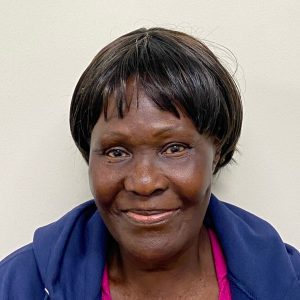The Link Between Menopause and Alzheimer’s: An Overview

It can be startling to hear that, by the age of 65, 1 in 5 women have a chance of developing Alzheimer’s, and menopause is actually a potential link. Here, the home care providers at Avila Home Care discuss the connection between menopause and Alzheimer’s, and how you can take preventative measures to preserve your brain health and stay alert.
Menopause Affects the Brain
Menopause tends to occur in the late 40s and early 50s in women, and brings about hormonal changes that can affect all parts of the body, including the brain. During menopause, there is a fluctuation between estrogen and progesterone, potentially making your memory seem weaker. In addition, hot flashes during menopause can alter blood flow throughout the body, and the slower blood reaches the brain, the slower your processing speeds and memory retention may become. Estrogen helps to open blood vessels throughout the body and increase blood flow, so on days when your body does not produce an adequate amount during menopause, you may find yourself struggling to remember certain events.
Monitoring Early Signs of Alzheimer’s
Diagnosing and monitoring signs of Alzheimer’s early can help you or your loved one to plan accordingly, and take measures to improve cognitive function proactively. Some early signs of Alzheimer’s disease include difficulty solving problems or completing familiar and routine tasks. This can be extremely frightening and frustrating when it first occurs, but ensuring that you schedule tests and ask loved ones for help when needed is important. Other signs of Alzheimer’s that can often be overlooked are emotional and social changes. Withdrawing from hobbies or social interactions that you previously enjoyed can also be an indication of Alzheimer’s and tend to become more noticeable as the disease progresses.
Taking Steps to Improve Memory
If you or a loved one has been diagnosed with Alzheimer’s after going through menopause, it can be daunting and frustrating to feel that you may have lost individual freedom. However, participating in activities and socialization throughout the course of the disease can increase the quality of life and potentially improve cognitive function. For example, if your loved one is diagnosed with Alzheimer’s, activities that your loved one previously enjoyed, such as crossword puzzles or gardening, can be altered to fit their cognitive level. Encourage them as they complete the task, and make the activities about enjoyment over achievement. Giving purpose to an Alzheimer’s patient can take their mind off of the fear and confusion they endure when they struggle to remember daily tasks. Establishing a routine, communication and connection with your loved one suffering from Alzheimer’s can help improve their mood and reduce agitation and stress.
Discuss Your Options With Avila Home Care
Alzheimer’s is a disease that can be frightening to those who suffer from it, and difficult to monitor for family caregivers. Knowing that there are uncontrollable factors, such as menopause, that increase the likelihood of this disease can be frustrating. Being proactive in monitoring signs during and after menopause is important. Avila caregivers have experience caring for those suffering from Alzheimer’s and can help you to maintain a high quality of life and prevent distress. If you or your loved one has been diagnosed with Alzheimer’s or dementia, contact one of our dedicated home care providers today to discuss your options.
The aging in place caregivers at Avila Home Care always encourage readers to discuss any health questions or concerns with a qualified healthcare professional.
Some content in this article was sourced from Healthline, Cleveland Clinic, Alzheimer’s.net, and Alzheimer’s Association.
Aging in Place in an Apartment
Independent apartment living offers many benefits such as less upkeep, easier mobility and easier access to neighbors and socializing opportunities. Aging in place in an apartment can relieve social and financial stress. Here, the home care providers at Avila Home Care discuss apartment living as a senior, and what one should look for when researching…
Read More...Helena Smith is Avila’s Caregiver of the Month for April, 2023!
We are delighted to share that Helena Smith has been selected as Avila’s Caregiver of the Month for April! Helena is a loving and nurturing Caregiver, and she treats all of her clients as if they were her own parents. She sings to them, makes them laugh and even takes them out for ice cream!…
Read More...Lillian Ochieng is Avila’s Caregiver of the Month for September, 2023!
Avila Home Care is thrilled to announce that Lillian Ochieng is our Caregiver of the Month for September! Lillian is a very dedicated Caregiver- her attention to detail and reliability are commendable. Her clients often comment that Lillian’s work ethic is incredible. We are thankful for Lillian, and we congratulate her on this award!
Read More...



